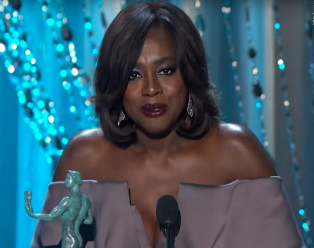Black Feminism

February 20, 2023
Black History Month started off strong with Viola Davis becoming the third Black woman to win an EGOT, as well as Beyoncé becoming the top Grammy artist in the world. Although it is important to celebrate the progress that Black women have made, it is equally as important to acknowledge the structures that have kept them suppressed for so long, as this is the only way to create permanent change.
The United States was founded on misogyny and white supremacy, as our founding fathers sexually assaulted and enslaved Black women; therefore, Black women have always experienced a disproportionate level of oppression compared to white women and Black men. This is ingrained in our social institutions and perpetuated through education and politics, and there has not been one single large-scale feminist movement that is founded on looking at intersectionality and the experience that women of color face.
Modern feminism is rooted in the work of the women’s suffrage movement. Although the American education system depicts suffrage activists, like Susan B. Anthony as heroes, they gloss over mentioning the white supremacy of this movement. The women’s suffrage movement only began in response to Black women getting the right to vote. As highlighted in works by Black feminist bell hooks, white women felt superior to Black men due to their race, so they felt more deserving of the right to vote. This essentially exiled Black women in the conversation of achieving equal rights between men and women, and this has had long-lasting impacts on the goals of feminism.
These lasting impacts can be seen in the feminist movement of the 1960s that emerged at the same time as the civil rights movements. The way white feminists focused on their own needs while overshadowing the struggles of Black people is reminiscent of the weaknesses of the suffrage movement.
In modern times, rich white celebrities have brainwashed people into believing that they are the face of feminism. The #MeToo movement specifically has pushed these people to the forefront of feminism. Although the goals of #MeToo are important, the new leaders of feminism that have emerged, such as Reese Witherspoon, Jennifer Lawrence, Lady Gaga and many more women in the media industry, do not provide an accurate depiction of the typical woman experience, especially not women of color.
The experience of Black women in the #MeToo movement is grouped together with those of white women, although white women do not face the same type of oppression that Black women do. Black women are harassed at higher rates in the workplace, and this is not acknowledged in the movement at all. The grouping together of all women further silences Black women, which strengthens white supremacy.
I do not think that the feelings of rich white women should be silenced, but they should not be the foundation of the popular feminist movements while other women are experiencing discrimination from all aspects of their identity.
It is difficult to applaud feminism, as it has not been successful at creating long-term success for all women. A feminist movement that is crafted to achieve the goals of the privileged does not help all women. If only white women are considered equal, then the goal of equality for all is not met, and this prolongs inequality.
Technology has turned modern activism into performative expressions on social media, like reposting infographics to an Instagram story, but fixing this issue requires much more effort than this. It requires systematic change.
Education is the primary force in socializing people. The history that is currently taught in the United States school system is from the perspective of those who control social structures, which is white men. This is not an accurate depiction of our country. To start the process of taking these structures down, Black feminist thought must be integrated into education.






